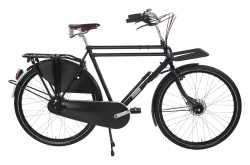>>1718658>shops are filled with glossy sales staff instead of actual mechanicsHaving a working knowledge of bike interchangeability, torque specs, and so on requires more knowledge than it used to. You can now work as an auto mechanic and be paid more, and more reliably, than if you're a bicycle mechanic.
Originally, you could get 90% of the shit done with a crescent wrench, a la Schwinn, and torque was "meh, good enough."
Now you've gotta loctite and then torque wrench spec stuff, often for a shit wage. Sales staff are (or at least were) cheap to hire, and do the basic assembly and 90% of the build sometimes on things like the cheaper bikes, and the mechanic just does the touch-up (e.g., limit screws). Sales staff learn the ropes and move up and sometimes out from being bike shop mechanics.
>everything is either a 47 speed carbonMost hybrids themselves are basically just re-badged road bikes with mountain bike shifters/v-brake/mechanical disc levers. You can churn them out by the hundreds, whereas a 'practical bike' with an EXTREMELY sharp rake and trail like that upright there will require a whole new production line.
Newbie riders who buy the bulk of bikes have a matrix of concerns-
Cost (see above, they're just a spare 1000 frames from a pre-existing design/geometry. No R&D, no separate line. 'Cheap for how light they are.')
Weight (obviously, the hybrid wins here)
Comfort (which doesn't show up during the 'loop around the parking lot' that bike shops allow).
They won't buy a practical bike, because it costs $$$.
E-bikes are bike shops' and manufacturers' dreams, because the work is harder to DIY/requires new tools. For manufacturers, the e-motor is there to compensate for shitty build quality.
The battery will fail well before the frame.
The profit margins are out of this world, since any reputable battery maker has a client list that's a mile long- what are you gonna do, skimp on the battery/buy an off-brand and burn down your apartment?

